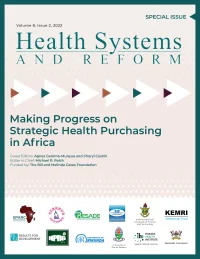How Did an Integrated Health and Social Services Center in the Quebec Province Respond to the COVID-19 Pandemic? A Qualitative Case Study
ABSTRACT
During the first and second waves of the pandemic, Quebec was among the Canadian provinces with the highest COVID-19 mortality rates. Facing particularly large COVID-19 outbreaks in its facilities, an integrated health and social services center in the province of Quebec (Canada), developed resilience strategies. To explore these diverse responses to the crisis, we conducted a case study analysis of a Quebec integrated health and social services center, building on a conceptualization of resilience strategies using “configurations” of effects, strategies, and impacts. Qualitative data from 14 indepth interviews conducted in the summer and fall of 2020 with managers and frontline practitioners were analyzed through the lens of situations of “anticipation,” “reaction,” or “inaction.” The findings were discussed in three results dissemination workshops, two with practitioners and one with managers, to discern lessons they learned. Three major configurations emerged: 1) reorganization of services and spaces to accommodate more COVID-19 patients; 2) management of contamination risks for patients and professionals; and 3) management of personal protective equipment (PPE), supplies, and medications. Within these configurations, the responses to the crisis were strongly shaped by the 2015 health care system reforms in Quebec and were constrained by organizational challenges that included a centralized model of governance, a history of substantial budget cuts to longterm care facilities, and a systematic lack of human resources.
Membres et équipe SHERPA

Lara Gautier
Professeure adjointe, Département de Gestion, d’Évaluation et de Politique de Santé, École de Santé Publique, Université de Montréal

